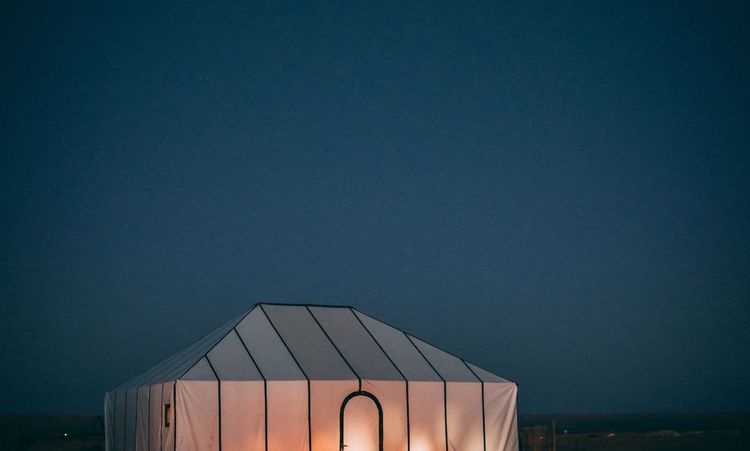Hotels aren't what they used to be. Guests want more than just comfort and convenience. They care about the environment too. That’s where sustainable hotels come in. These places provide relaxing stays without wrecking the planet. It’s hospitality with heart.
Eco-friendly hotels now blend luxury and responsibility. They give you soft sheets, hot showers, and peace of mind—all in one stay.
What are sustainable, eco-friendly hotels?
Eco hotels are designed to leave a lighter footprint. They protect natural resources and cut down on waste.
But it’s more than turning off lights. True sustainability means looking at every part of the hotel’s operations.
That includes how it’s built, how it runs, and even who it supports. Everything gets a second look.
Some use renewable energy like solar power. Others focus on using less water. Many offer organic toiletries in refillable containers.
Sustainable hotels often earn green certifications. Think LEED, Green Globe, or the EU Ecolabel. These labels show serious commitment.
It’s about caring for the planet—and for the people who call it home.
Best practices for eco hotels
Hotels that go green usually follow similar routines. These aren’t just fads. They’re baked into how they operate.
Some start with green building materials. Think recycled glass, bamboo, or VOC-free paints. Others update older buildings to make them more efficient.
In-room tech makes a difference. Programmable thermostats, keycard-activated electricity, and motion sensors reduce waste when rooms are empty.
Training the staff is essential too. Workers need to know how to separate recycling, manage waste, and help guests use resources wisely.
Restaurants use local produce when they can. Many hotels create partnerships with nearby farmers, fisheries, or bakeries.
The goal is to support the local economy and keep transport-related emissions low.
Reducing plastic waste and automating energy control
Plastic is everywhere in traditional hotels. Water bottles, shampoo bottles, straws, key cards—you name it.
Eco-friendly hotels tackle this problem head-on. Instead of single-use plastics, they offer reusable or compostable alternatives.
Water stations replace plastic bottles. Toiletries come in dispensers. Even laundry bags might be made from cloth, not plastic.
They don’t stop at plastic. Energy use gets smart, too.
Many hotels install systems that only run lights or air conditioning when guests are inside. Smart thermostats adjust to the weather.
HVAC systems are upgraded to high-efficiency models. LED lighting is standard. These steps save energy without affecting comfort.
It’s thoughtful, not flashy. And it works.
Cutting food waste and saving water
Hotels create mountains of food waste daily. From buffets to banquets, uneaten meals end up in the trash.
Eco hotels change this. They plan meals better. They track consumption. Many donate leftovers to shelters or compost the scraps.
Menus now use local ingredients. Kitchens buy what’s needed, not what’s cheap. Some places even grow herbs on-site.
Water matters too. Sustainable stays include water-saving features in every room.
Showers use low-flow heads. Toilets are dual-flush. Taps shut off automatically.
Some hotels collect rainwater to use in landscaping. Others recycle greywater from sinks or laundry for flushing toilets.
These actions protect precious water supplies without cutting back on comfort.
Using sustainable mobility and supporting the local community
Transportation affects a hotel’s footprint more than most think. Cars, taxis, and deliveries all add up.
That’s why green hotels offer alternatives. Some provide bikes for rent. Others partner with electric car companies.
EV charging stations are becoming common. Guests can plug in while they rest.
Hotels also take pride in helping their neighbors. They employ local people. They buy from local markets.
Tours are led by locals, not outsiders. Craftwork in rooms often comes from nearby artisans.
Supporting the community makes guests feel part of something bigger. And that feeling lasts longer than the vacation.
Benefits of eco-friendly hotels
Eco hotels aren’t just good for the planet. They offer real benefits to everyone involved—guests, owners, and the community.
Let’s explore how these benefits show up in real-world ways.
Reduce carbon footprint
Using renewable energy means fewer emissions. That’s why sustainable hotels often run on solar power or use passive heating systems.
Smart tech keeps energy use low. So do better insulation, energy-efficient lighting, and properly sealed windows.
Every bit helps. Cutting emissions isn’t just good PR. It’s survival for future generations.
Support local community
Local businesses thrive when hotels buy nearby. That includes food, furniture, soap, or even flowers.
This kind of support keeps jobs in the area. It boosts local pride too.
Travelers love authenticity. And nothing’s more authentic than experiencing a place through its people.
Sustainable practices
Daily routines make or break a hotel’s environmental impact. The best ones follow strong systems.
Recycling bins in rooms. Composting programs in kitchens. Smart irrigation for gardens.
These aren't flashy, but they matter. Guests see the difference—and many copy it at home.
Leading by example helps create a culture of sustainability far beyond the hotel walls.
Reasons why hotels are going green
So why are more hotels getting serious about sustainability? The reasons are both practical and personal.
Three big motivators drive the change: saving money, meeting demand, and following the rules.
Cost savings in the long run
Energy-efficient upgrades might seem expensive. But the long-term savings tell a different story.
Switching to LED lighting slashes electricity bills. Low-flow fixtures cut water costs. Fewer disposables mean less trash and fewer purchases.
Automation helps too. Heating or cooling only when needed lowers utility costs.
Over time, what starts as an investment becomes a serious budget win.
Increased demand from travelers
Today’s guests want options that align with their values. Many now look for green hotels when they book.
Search platforms and travel agencies even let you filter by sustainability ratings.
Younger generations—especially Millennials and Gen Z—expect hotels to care about the environment. That’s not a trend. It’s the new normal.
Green features attract great reviews. They also bring in repeat customers who appreciate responsible travel.
Environmental regulations
Laws are changing fast. Cities, states, and countries are setting new environmental standards for the hospitality sector.
Hotels now face fines for failing to meet waste targets or energy limits.
Getting certified under ISO 14,001 or ISO 50,001 isn’t just a badge. It’s a ticket to staying open and competitive.
Being ahead of these rules means less stress—and better press.
One hotel’s journey toward sustainability
I once stayed at a hotel in Costa Rica known for its eco-friendly practices. It wasn’t flashy. But it had a calm, purposeful charm.
The entire structure used bamboo framing and recycled wood. Solar panels provided electricity and heated the water.
Guests received reusable glass bottles and filled them at filtered water stations.
They composted food waste. Even the soaps were handmade by a local women’s cooperative.
Everything had meaning. Nothing felt wasteful.
By the end of my stay, I didn’t just feel rested. I felt inspired. That’s what a sustainable hotel can do.
Conclusion
Sustainability is no longer a luxury—it’s a necessity. Eco-friendly hotels show that we don’t have to choose between comfort and conscience.
By cutting waste, using smart energy tools, and supporting local people, these hotels are leading a global shift.
They’re not just better for the planet. They create better experiences for guests too.
As more travelers demand responsible choices, the hospitality industry must keep up. Green hotels aren’t a niche anymore. They’re the new gold standard.
Next time you travel, look for a stay that values the earth as much as your comfort. That choice could change everything—one night at a time.



